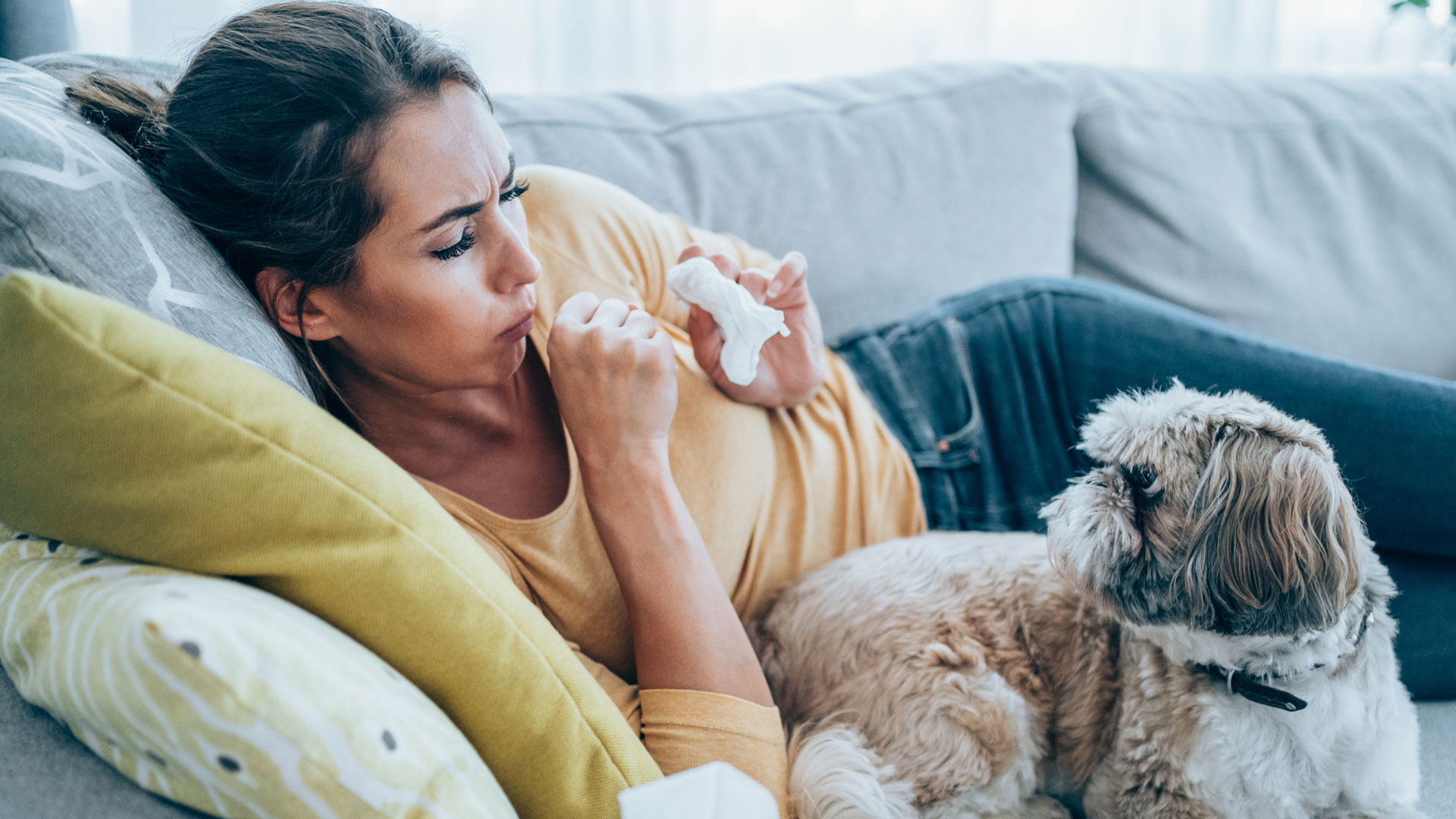Is kennel cough contagious to humans?
How does it spread and is kennel cough contagious to humans?

Kennel cough is a common respiratory disease amongst our canine friends, gaining its name ‘kennel cough’ due to the infection spreading when groups of dogs are housed or kept together. It’s a highly infectious disease amongst dogs but is kennel cough contagious to humans?
Certain conditions and diseases of pets are zoonotic, meaning, they can be passed from animals to humans. Knowing which ones have this ability, what symptoms to watch out for, and taking preventative and hygiene measures to decrease transmission is advisable, to keep your health (and your dogs) in tip-top condition.
Contrary to its name, it is worth noting dogs can pick up kennel cough from a variety of situations, it is not an infection exclusive to boarding kennels. The pathogens guilty of causing kennel cough float around freely and are easily caught, creating a variety of symptoms and illnesses. Fortunately, preventions and cures are easily available.
Here, qualified veterinary nurse, Annaliese Morgan explains everything you need to know.
Annaliese qualified as a veterinary nurse from Edinburgh and went on to attain a diploma in advanced veterinary nursing in surgery from London. Annaliese worked in both small and mixed veterinary practices and gained head nurse status. She has looked after 1,000s of patients and co-authored multiple books.
Can humans get kennel cough?
The short answer is – yes –we can. However, according to the American Medical Veterinary Association, The People’s Dispensary For Sick Animals, and an article in The Vet Times, it is extremely rare for the infection to be transmitted from your dog to you and owners do not usually have to avoid infected dogs. When cases of human kennel cough have occurred or been reported, it is often people with weakened immune systems or an underlying health condition already who are affected by the Bordetella pathogen (the main causal agent of kennel cough).
Aside from contracting kennel cough directly from your dog, there is a theoretical possibility of catching kennel cough from the kennel cough vaccine. This is administered up the nose in a spray form and is classed as a live vaccine (i.e., contains a small amount of the live bacteria). Whilst rarer still to catch kennel cough this way, Nobivac (manufacturers of the vaccine) recommend all immunosuppressed people avoid contact with the vaccine and vaccinated dogs for up to six weeks and for those with severely immunosuppressed systems to avoid the vaccination altogether. This might sound intimidating, but no known confirmed cases of humans catching kennel cough from the vaccine have been confirmed and the risk of catching kennel cough from an infected dog is higher than that of catching it from the vaccine.
Whether directly or via the vaccine, it is extremely unlikely you will catch the pesky kennel cough bug yourself.
Get the best advice, tips and top tech for your beloved Pets

What are the symptoms of kennel cough in humans?
It never hurts to be armed with information, as with most things in life, awareness is the key. So what are the symptoms of kennel cough in humans and what should you do if you suspect or are concerned you may have caught it?
- A new and persistent cough which can sound a little like whooping cough
- Sore throat
- Difficulty swallowing
- Shortness of breath
- Fever
- Respiratory/breathing issues
If you are concerned about any of your symptoms and /or have any of the above-mentioned following contact with an infected dog, or contact with the vaccine, the best plan is to contact your doctor or health provider. If it is found to be kennel cough, and not a strain of the beastly colds and flu we all get from time to time, then treatment is usually a course of antibiotics and medication to suppress the cough.
What causes kennel cough?
Most commonly the respiratory infection is caused by a bacteria known as Bordetella bronchiseptica, although it can also be caused by a mixture of Bordetella and viruses such as canine influenza and distemper. A dog will become infected when the bacteria (or virus) have been inhaled and enter the respiratory system. The pathogen then takes hold causing infection and inflammation of the windpipe and voice box.
As previously stated, it is not only at boarding kennels where this can be picked up but anywhere where dogs are (the park, the groomers, veterinary waiting rooms) or multi-dog households. Environment and stress play a part too, places with poor ventilation, cigarette smoke, cold temperatures or overcrowding increase the dog's susceptibility to kennel cough.
Symptoms normally appear in dogs two-14 days following exposure to the bacteria or virus.
Kennel cough can be passed on to other dogs by three methods:
- Via the air – the bacteria is passed in water droplets when the dog barks, sneezes, or coughs
- Direct contact – sharing chews or toys. Nose rubbing and nose touching between dogs
- Contaminated objects and surfaces – toys, water, and feeding bowls

What’s the fastest way to cure kennel cough?
The fastest and simplest way to cure kennel cough is to prevent it in the first place by vaccinating your dog against it, especially if going into boarding kennels. Most respectable and reputable boarding kennels and establishments will require your dog to be vaccinated against kennel cough if they don’t perhaps think twice about using them. The vaccine is administered up the nose and lasts 12 months.
Should your pooch have kennel cough the recommended way to treat it and look after them, is to first visit your veterinarian for the correct diagnosis, as other illnesses can cause similar symptoms. If it is diagnosed, often no treatment will be given as symptoms disappear after around 3 weeks or up to 6 weeks in more severe cases. If they require medication a course of antibiotics is most likely to be prescribed. Sometimes anti-inflammatory drugs and cough suppressants will be offered to make the recovery process more comfortable for your dog.
Consider using one of the best dog harnesses to walk your dog in as this is less likely to pull, press, or irritate the throat area. Helpful measures at home also include ensuring your home (or their room) is well-aired and at an optimum temperature.
You might also want to read: Can dogs get a cold or flu?
Annaliese qualified as a veterinary nurse from Edinburgh and went on to attain a diploma in advanced veterinary nursing in surgery from London. Throughout this time, she worked in both small and mixed veterinary practices and gained head nurse status. Responsible for training other veterinary nurses she also ran the nursing department, nurse clinics, and patient care protocols.
She has looked after 1,000s of patients and owners and created new higher standard nursing regimes, whilst specializing in surgery and anesthesia. After being asked to co-author multiple veterinary nursing textbooks, Annaliese continued to write for further mainstream publications in the UK and USA and after twenty-plus years in both the veterinary and pet care professions, she hung up her scrub suit and now writes full-time.

